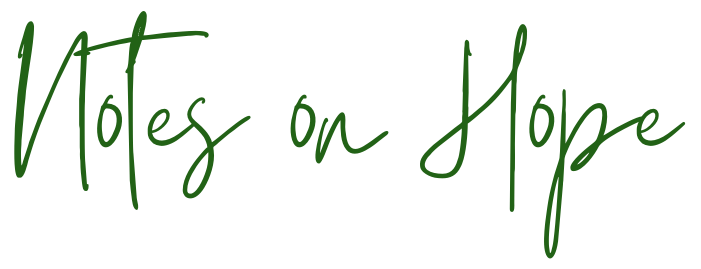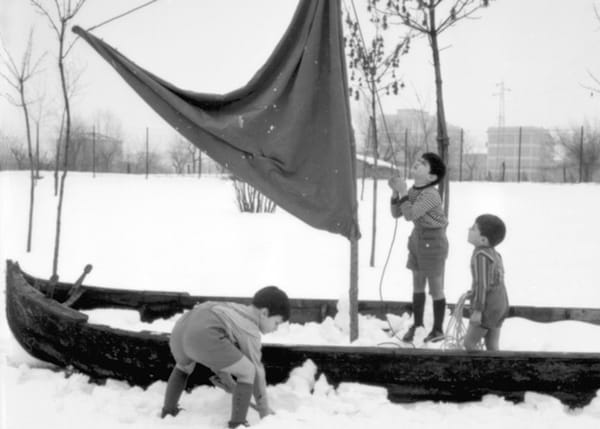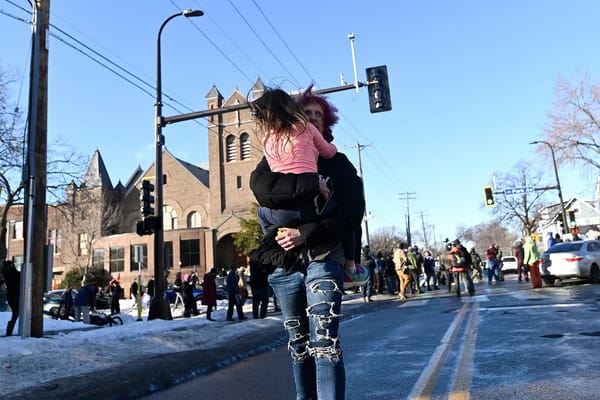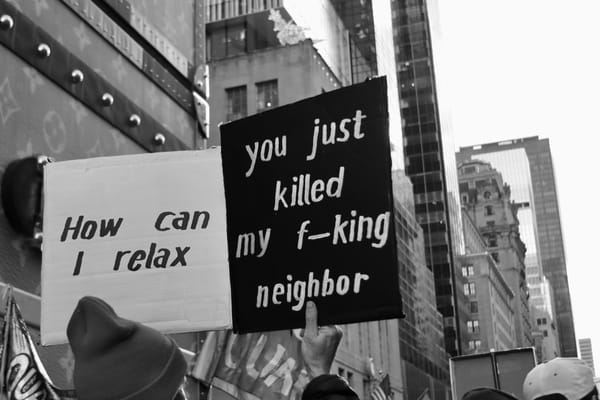What Will You Save?
How we move forward step by step even when the task seems too big
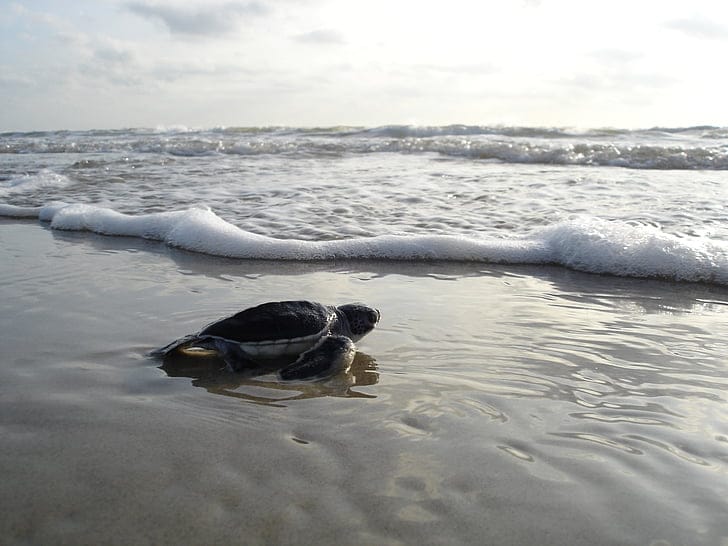
“I love this world, even in its hard places.
A bird too must love this world,
even in its hard places.
So, even if the effort may come to nothing,
you have to do something.”
~Mary Oliver
One of the most frequent reminders I offer to parents is that, because there are so many experiences children are encountering for the first time, lots of tasks that may seem simple to us feel big and overwhelming to them. And when a task feels overwhelming, it is almost always helpful to break it down into smaller parts.
Often, when children refuse to do something or become inconsolable at what we adults may feel is a straightforward request, it’s because they don’t know where to begin. So they either ignore us, shut down and turn away, or dissolve into hysterics. For a young child, this might be as simple as seeing toys strewn across the floor and not knowing where to begin when asked to clean up. Even putting on socks or a jacket involves a series of smaller steps, which we no longer think about once the task is mastered. But these steps can feel impossible to decipher at the beginning, and so many aspects of a young child’s day are beginnings.
If you trailed a teacher throughout a school day, you would find that many of their interactions with children could be described as breaking a process, a skill, or a concept into smaller parts. This is partly because, in mastering smaller skills or ideas, we practice the competencies necessary to work toward the larger goal. But it is also simply a way of managing the emotional tendency to feel helpless in the face of anything that seems too big or out of reach. As we gain experience and knowledge, many things that once felt big begin to feel manageable, and we forget, looking upon those tasks now, how overwhelming they once were.
My childhood piano teacher used to say that the most important mark of good teaching was the ability to understand (or perhaps to remember) what makes a novel task difficult or stressful to someone else, regardless of how simple it may feel to you from your position as an expert. This is why good teaching involves empathy, both for the child and for your past novice self; it’s not only important to be able to parse a concept into its preceding understandings or skills, but also to remember what it feels like to be confused, frustrated, and unable to reach an ideal you’re striving for—to solve the problem that seems unsolvable or to play the song as well as you can hear it.
But, even as the tasks of childhood may feel simple in retrospect, if we’re honest, I suspect most of us would acknowledge that the feeling itself remains unnervingly familiar and close at hand. The world is big and complicated and often overwhelming even for adults, and there are many moments when each of us, no matter how much life experience we’ve had, likely feels that sense of “this is too big for me.”
Hopefully, we become increasingly able to move through such moments when the practical demands of adult life necessitate that we do. But I think the reality of all of those practical demands is that they can also make it more difficult to confront the “this is too big” feeling when we are faced with crises that are far beyond the scope of our own daily lives. And the world is filled with such confrontations now.
While children become easily overwhelmed by pragmatic tasks—cleaning up a messy room, putting on a jacket, starting a big school project—they often have expansive imaginative capacity for the very large-scale harms and injustices of the world that boggle our practical grown-up minds and numb our hearts. There are many reasons for this, surely including the fact that the practical problems of day-to-day life require effective, often immediate solutions, whereas, for a child, the big problems can reside within the realm of limitless, even magical possibilities.

Yet, when we look to the examples of those who have shaped history in the past or are influencing the direction of the future now, a common trait, I think, is that they have not lost sight of that childlike capacity to imagine a wildly different reality, even as they recognize the challenges and practicalities of the the present with adult eyes. And committing to working toward a vision, rather than just dreaming about it, necessitates the same ability to parse large goals into more manageable and immediate steps that we coach young children into and utilize in moving through all of our other more individual lists every day.
Ayana Elizabeth Johnson, a marine biologist and climate strategist, urges people to step into the work of solving big problems through this mentality of holding onto a bold, hopeful, moral vision of the future, while taking actions that are manageable and attainable in the present. In a 2023 commencement speech, which she republished this week, she says,
“Let's be clear: moral clarity is not the same thing as naïveté. It is naive to expect that governments and corporations will do the right thing, or that someone else will handle it. It is naive to think we can ‘solve’ or ‘stop’ climate change. It is also naive to give up, when every tenth of a degree of warming we prevent, every centimeter of sea level rise we avoid, every species we save, and every increasingly unnatural disaster we avert all matter so very much.”
There are lots of valuable lessons here, but perhaps the most important is that we shouldn’t let the seeming impossibility of a big problem stop us from doing what we can, because even a little bit of change makes a difference and can impact the long-term trajectory in bigger ways than we realize.
A powerful extension of this idea, which also comes to life in very concrete ways in the classroom, is the fact that all our incremental work often adds up to something less incremental when we combine our efforts with others. Many of those seemingly overwhelming tasks children face in the classroom are quickly made manageable when wise teachers turn them into group tasks. You can accomplish more, and it is easier to comprehend how much your efforts matter when you see how they accumulate alongside the efforts of others.
Johnson speaks about this as well. In both her speech and her book, What If We Get It Right, she describes the process of determining your role in addressing a crisis by considering a Venn diagram in which your unique skills and joys intersect with a need—a modified version, Johnson notes, of the Japanese concept of Ikigai. In a world and an historical moment in which we seem constantly inundated by enormous needs and profound crises, this is a strategy we would be well advised to apply broadly, both for its practical value and for our own sense of agency, which is essential in avoiding despair. When faced with a choice between doing nothing and doing something, it always matters—both to the world and to our own wellbeing—to do something.
How many of us have either said or had someone say to us recently a version of, “I’m tired of living in unprecedented times.” We may have always wondered, sitting in school or listening to our grandparents tell stories of their own lives, what we would have done had we lived through prior crises of history. But imaging ourselves in those moments is not the same as living through them. And it turns out that—while we may have fancied ourselves heroic in the movie we ran in our mind's eye—living through historic change is both more granular and more paralyzing than we likely envisioned.
It is easier to simply keep going on with our daily lives than we may have anticipated, muting the dread and the cognitive dissonance that accompanies punishing news cycles with the tasks at hand. Just like the child, who is paralyzed by the scale of a large task and freezes, flails, or feels suddenly compelled by anything that will take their attention and their body elsewhere, we do the same as adults. The many practical responsibilities of adult life make it legitimately harder to devote mental time and energy to problems that feel too big for us, and all those responsibilities also make it easier to justify turning away.
The final line of Bob Hicok’s poem, “Last Days of Rome” reads, “Otherwise they need milk, eggs.” When we can’t solve an overwhelming crisis looming on the horizon, it is necessary to continue with the business of daily survival, and it is simultaneously soothing to turn to the productivity of things we know we can manage—milk and eggs.
There is a tension between the genuine need to continue moving all the wheels of day-to-day life forward—particularly as a parent, responsible for keeping another human being sheltered, fed, clothed, and educated—and awareness of the way all these daily tasks also provide a vector for escapism when there is so much that warrants our deep care and focus, the more we are able to zoom out from our own individual lives.
The only solution I’ve found for addressing that tension is to take the same approach I would take with children when they become overwhelmed, which is echoed in Johnson’s advice about tackling climate change: find your piece of the work, remember that even some progress is better than the alternative, and take note of each other and of how all of our contributions can create momentum that no one person could accomplish alone.

Last week, I included a link at the end of my note to an article about the decades’ long conservation effort to save the Kemp’s Ridley Sea Turtle. It is an effort that made groundbreaking progress for many years and has more recently encountered setbacks. But the continued determination of the researchers in the moments of startling success and in the moments of disappointment, and the progress they’ve achieved, is both inspiring and comforting to me. It is evidence that, when we focus on healing one small part of the world with persistence and creativity, change is possible. And it is a reminder that if lots of people are working toward healing in different ways this work accumulates. Our small bit of progress may never feel like enough, but it will always yield more impactful and meaningful outcomes than staying frozen in paralysis or knowingly turning a blind eye, especially when we can see that others are doing their part, too.
This week, I read a similar article about the scientists working to keep a little known bee species from extinction—not to solve climate change, not even to save all the bees, but to save one very rare species. They’ve also developed a citizen science project to gather data on what types of plants various species of bees prefer. The end of the article notes,
“If enough people fill their own yards with the plants they want and need, the bees will show up, keeping our world in bloom for a long time to come.”
This feels very aligned with the wisdom of approaching overwhelming problems in the classroom. The importance is in beginning the work, because in beginning we initiate momentum. And it is in doing so together, because we can always accomplish more when we are not the only one pressing forward. This doesn’t just apply to a classroom task or to turtles or bees or even to climate change. It applies to all the things that fill our headlines and tear at our hope each day.
As the writer and activist, Kelly Hayes, wrote this week,
“Perhaps that’s the first thing we need to acknowledge to ourselves: nothing will feel like enough because everything we know and love is at stake. No individual’s actions will be commensurate with the threats we face. But we can each endeavor to do the next right thing, whatever that means for us….The question before us is not who we would have been in a different era, but what we are willing to do now, in concert with others, before it’s too late.”
So, amidst all that feels overwhelming, where do the circles of your own Venn diagram converge?
What skills and resources are available to you? What work matters to you and brings you satisfaction? And what is needed? Where can you take even one small step toward healing something that’s broken, protecting something that needs protection, or creating something that will help make the future a little brighter and a little less precarious for others?
What will you do tomorrow?
Wishing you the clarity to find your next step and notice others doing the same,
Alicia
An Important Moment to Remember and Reflect
Today marked the five year anniversary of George Floyd’s murder. As we are in the midst of a fierce backlash against the progress that his death seemed to have ignited five years ago, in one of the biggest protest movements in U.S. history, it feels especially important to say his name and remind ourselves of the work that still lies ahead.
I found this article particularly helpful and hopeful in ways I did not anticipate.
“Some look at the landscape today, where fascism is tightening its grip on our civil and human rights, and think this must mean this fight was lost. But if you’re seeing it that way, you’re not thinking big enough. The systems we fight are centuries in the making, and the power they’ve amassed won’t be torn down by one summer of protest. Every major win Black movement has had, from the abolition of slavery to the civil rights movement and beyond, was decades in the making through sustained organizing, strategy, and powerbuilding. It required persevering through the vicious backlash of American white supremacy, capitalism and other ills. The same is true now.”
A few other helpful, hopeful links form the week…
- Utah released a two year study that resoundingly supports gender affirming care
- There Is No Parenting Crisis
- And, in case you haven’t heard, Kermit gave a commencement speech
If you think someone else in your life might need some hope, please share. It’s always easier to hold onto hope when we’re not doing it alone.
And if you appreciated this post and are not already a subscriber, please consider subscribing to Notes on Hope.
